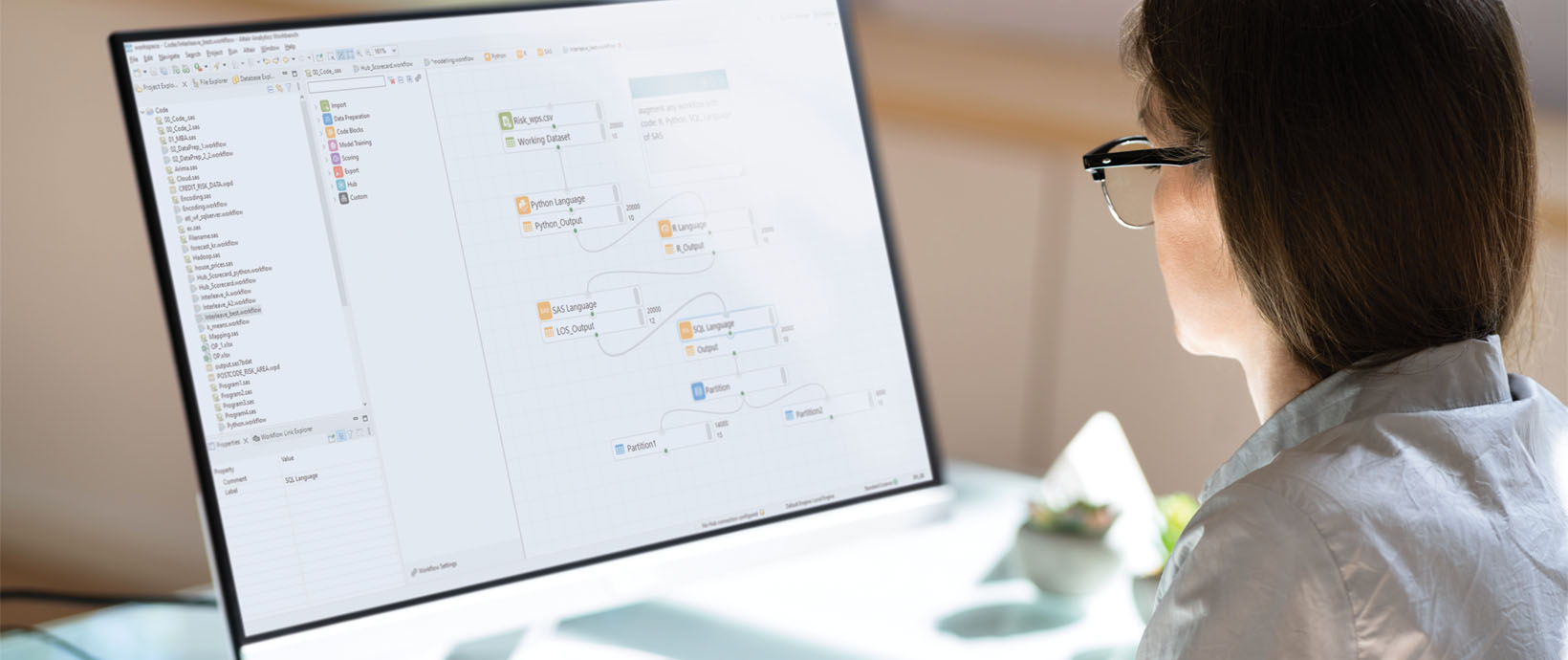Think Like a Master Chef
With Thanksgiving and the holiday season right around the corner, many of us are gearing up to attempt to master some seriously ambitious culinary delights for our friends and families. America loves to cook. We even love to WATCH the professionals do it, as evidenced by the success of shows like Master Chef, Chopped, Top Chef. We’re so obsessed with food and the cooking process we even like to spend time watching people fail at it (Nailed It, Worst Cooks, etc)!
While we were planning our big dishes for holiday dinners, we realized how similar cooking and analytics are. Let us explain. Both arts share five common principals that can be applied to either help you master your data, or be a Master Chef.
For data analysts, gaining a holistic view of all the available datasets is key to effectively blending and transforming the data. A central data marketplace provides this holistic view, by curating access to various datasets and reports created by domain experts across your organization. This helps you truly understand all the raw data you have available to you, so you can start to dream up new ways to blend it together to create imaginative ‘recipes’ that result in impactful insights.
In data analytics accurate, fresh data is the foundation for generating trusted insights that can be shared and utilized by the entire organization. Combined with skillful handling, expert curation, and proper reporting, automating repeatable data preparation processes enables more “fresh” information to be used for timely, data-driven decision making.
The same goes for data prep. Properly prepping your data is an important step in the analytics process that often gets overlooked. Without a good data prep process, the resulting analytics could turn out to be incomplete, hard to decipher, or completely wrong. When this happens, decision-making suffers horribly – like the gut of a diner who eats undercooked or contaminated food due to poor meal prep.
For data analysts, having the right prep tools dramatically increases efficiency and reduces errors. Having a tool by your side that’s always easy to use, a good fit for any job, and can work with any data, means there’s no analytical challenge too big to tackle. Even further, automating data prep processes, when appropriate, means you don’t have to manually extract, cleanse or reconcile data, leaving you more time to use your domain expertise to produce analyses and visualizations that provide useful insights.
Same goes for analytics. To facilitate communication, you need a platform that allows everyone in an organization to collaborate and share information while maintaining data integrity and governance. Collaboration between the analysts and domain experts is the key to generating accurate insights and trusted results that can benefit the entire organization. Everyone has their roles – as an analyst, data consumer, data scientists or curator – and ensuring that they do not duplicate work and save certain steps for the experts will mean that the result is something everyone can be proud of.
Want to find out more on using the right tool for your data prep? In our upcoming “7 Steps to Master Your Data” we’ll show you how to increase the efficiency and accuracy of your data analytics. Learn more and register today!
While we were planning our big dishes for holiday dinners, we realized how similar cooking and analytics are. Let us explain. Both arts share five common principals that can be applied to either help you master your data, or be a Master Chef.
Know Your Ingredients
A Master Chef takes the time to create the perfect recipe and to understand how all the ingredients will mingle together before he starts cooking. This holistic view allows him to use all the available ingredients at hand correctly and with confidence, even those that he’s less familiar with.For data analysts, gaining a holistic view of all the available datasets is key to effectively blending and transforming the data. A central data marketplace provides this holistic view, by curating access to various datasets and reports created by domain experts across your organization. This helps you truly understand all the raw data you have available to you, so you can start to dream up new ways to blend it together to create imaginative ‘recipes’ that result in impactful insights.
Value Freshness
Any good chef understands the importance of using high-quality, fresh ingredients. They are the foundation of an excellent dish, skills, patience and passion. Without the highest-quality ingredients, even the master chef will be hard-pressed to create a dish they can proud of.In data analytics accurate, fresh data is the foundation for generating trusted insights that can be shared and utilized by the entire organization. Combined with skillful handling, expert curation, and proper reporting, automating repeatable data preparation processes enables more “fresh” information to be used for timely, data-driven decision making.
By Failing to Prepare, You Are Preparing to Fail
Master Chefs understand the importance of properly preparing the ingredients -- chopping them to the right size, making sure they have the right texture and separating them into individual containers, so they can be blended together in the proper quantity when the timing is just right. Chefs even have a fancy French word for it – ‘mise en place.’ Skipping these prep steps might get the meal on the plate faster, but in the end it’ll impact the quality of the dish.The same goes for data prep. Properly prepping your data is an important step in the analytics process that often gets overlooked. Without a good data prep process, the resulting analytics could turn out to be incomplete, hard to decipher, or completely wrong. When this happens, decision-making suffers horribly – like the gut of a diner who eats undercooked or contaminated food due to poor meal prep.
Sharpen Your Knives
Master Chefs take their tools seriously. Most chefs will say their knife is their most important tool they own. It’s not always about owning the most expensive knife, but it’s more about having the right knife for the job and making sure it’s always perfectly honed. Why? Having a sharp knife that meets the task has incredible productivity impact and even improves the quality of the output. Good chefs also know when to use the right “automation” tools. For example, they can save an incredible amount of time by using a food processor, which frees them up to focus on the steps that require more focus, like implementing the right ratio of spices and perfecting the final presentation (plating).For data analysts, having the right prep tools dramatically increases efficiency and reduces errors. Having a tool by your side that’s always easy to use, a good fit for any job, and can work with any data, means there’s no analytical challenge too big to tackle. Even further, automating data prep processes, when appropriate, means you don’t have to manually extract, cleanse or reconcile data, leaving you more time to use your domain expertise to produce analyses and visualizations that provide useful insights.
It’s A Team Sport
Running a successful kitchen requires incredible teamwork. Collaboration and communication among everyone from head chef to sous-chefs and other support staff is the key to ensuring that everything is done correctly and efficiently. Everyone is responsible for their own part of the meal and brings their own expertise to the table, enabling everyone to work more efficiently and create the best dish possible in the end.Same goes for analytics. To facilitate communication, you need a platform that allows everyone in an organization to collaborate and share information while maintaining data integrity and governance. Collaboration between the analysts and domain experts is the key to generating accurate insights and trusted results that can benefit the entire organization. Everyone has their roles – as an analyst, data consumer, data scientists or curator – and ensuring that they do not duplicate work and save certain steps for the experts will mean that the result is something everyone can be proud of.
Want to find out more on using the right tool for your data prep? In our upcoming “7 Steps to Master Your Data” we’ll show you how to increase the efficiency and accuracy of your data analytics. Learn more and register today!




